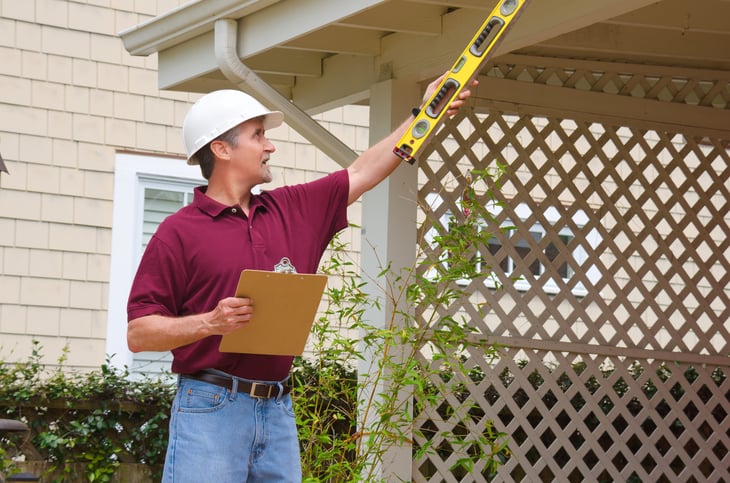
Editor's Note: This story originally appeared on Point2.
Based on what you see on TV shows, buying a fixer-upper seems like an easy way to make a lot of cash with a bit of basic DIY. But unfortunately, the reality is a little different. On the one hand, fixer-upper houses can be extremely affordable and a solid investment. On the other, they can also quickly become money pits.
With that in mind, let’s look at some of the most important things to know when buying a fixer-upper.
You Need a Solid Budget

Like any real estate transaction, buying a fixer-upper requires creating an air-tight budget. Before you even start searching, you need to know what you can afford. Unlike a typical real estate transaction, however, your budget needs to factor in the cost of repairs, as well as the home’s price tag, closing costs and all those other hidden fees.
When you create a budget for a fixer-upper, you need a firm figure in mind that you’re willing to spend on the project. Be sure to add an extra 15% since even the best-laid plans don’t always pan out. With this figure in mind, you’ll be better placed to decide what level of renovations you can afford, which can dictate the most suitable homes for you.
You Have Various Financing Options

While we’re talking about budgets, it’s worth knowing that in both Canada and the U.S., you can take out a special mortgage aimed at fixer-uppers. In the U.S., you have the following options:
- Fannie Mae HomeStyle Loan: Funds for renovations go into an escrow account to pay contractors; a 5% down payment is required; lower interest rates than a HELOC; can be used for primary and vacation homes, as well as investment properties.
- Freddie Mac’s CHOICERenovation Mortgage: A 5% down payment is required; lower interest rates than a HELOC; can be used for primary and vacation homes, as well as investment properties.
- FHA 203(k) loan: The cost of renovating and buying the home is rolled into one loan; lower credit score requirement compared to a conventional loan.
- VA renovation loan: The cost of renovating and buying the home is rolled into one loan; must use a VA-approved contractor.
Meanwhile, in Canada, you may be eligible for a renovation mortgage, which boasts lower interest rates and a longer amortization period with lower repayments.
You Should Have the Property Thoroughly Inspected

It’s always good to have your potential new home checked out by a home inspector, but with a fixer-upper, it’s essential. In fact, there are several specialized inspections that are worth spending a little more on to ensure you’re not buying a home with significant problems.
- Pest inspections: Essential in areas with termite, ant or beetle problems.
- Roof certifications: Provides evidence of the age and condition of the roof.
- Sewage inspections: Aging septic tanks and sewage lines can cost a lot to replace.
- Engineering report: Discloses any existing or potential natural or geological hazards.
In addition, be sure to have foundations, HVAC systems and electrical systems thoroughly checked, as these can also be extremely expensive and time-consuming to repair. If there are issues, they are often not worth the cost or effort to fix, so be sure to make your offer contingent on the result of these various inspections.
You Need a Plan

You’ll need to think ahead when buying a fixer-upper, and a solid plan will save a lot of stress. For example, how much of the work can you do yourself? Can you afford to hire contractors for major jobs? Will you live on-site during renovations? Ask these questions, and even if you intend to make this your forever home, plan as if you’ll be selling soon. And remember to plan for delays too, as they’re frequent in construction projects.
Location Is Key

No matter how amazing you make your home, you can never change its location. So remember, plan to sell. A great house in a bad neighborhood, or next to noisy, smelly or unappealing amenities, will be a struggle to sell. Some sound advice is to buy the worst house on the best street. A fixer-upper can be a great way to get into your dream neighborhood at an affordable price.




Add a Comment
Our Policy: We welcome relevant and respectful comments in order to foster healthy and informative discussions. All other comments may be removed. Comments with links are automatically held for moderation.